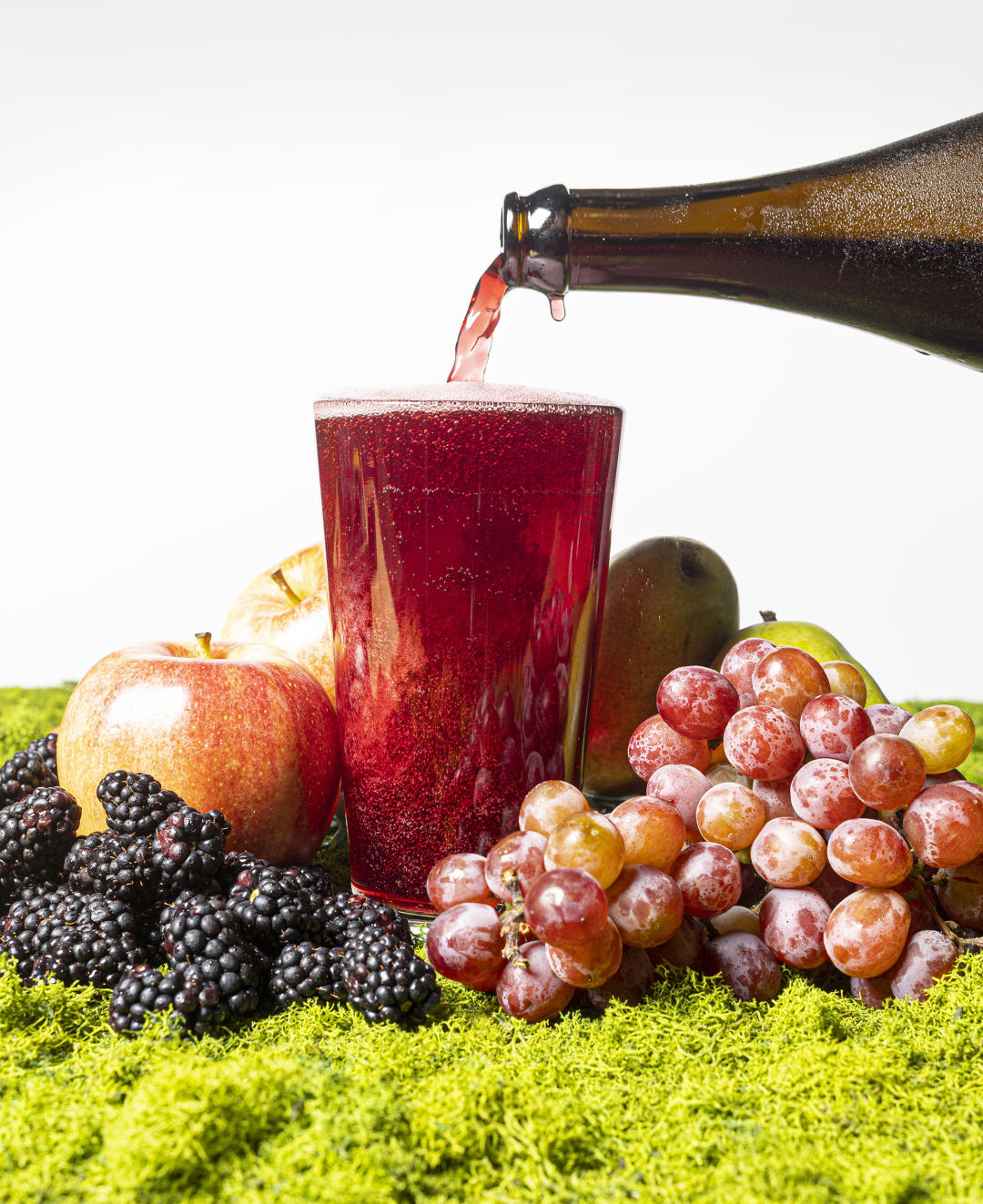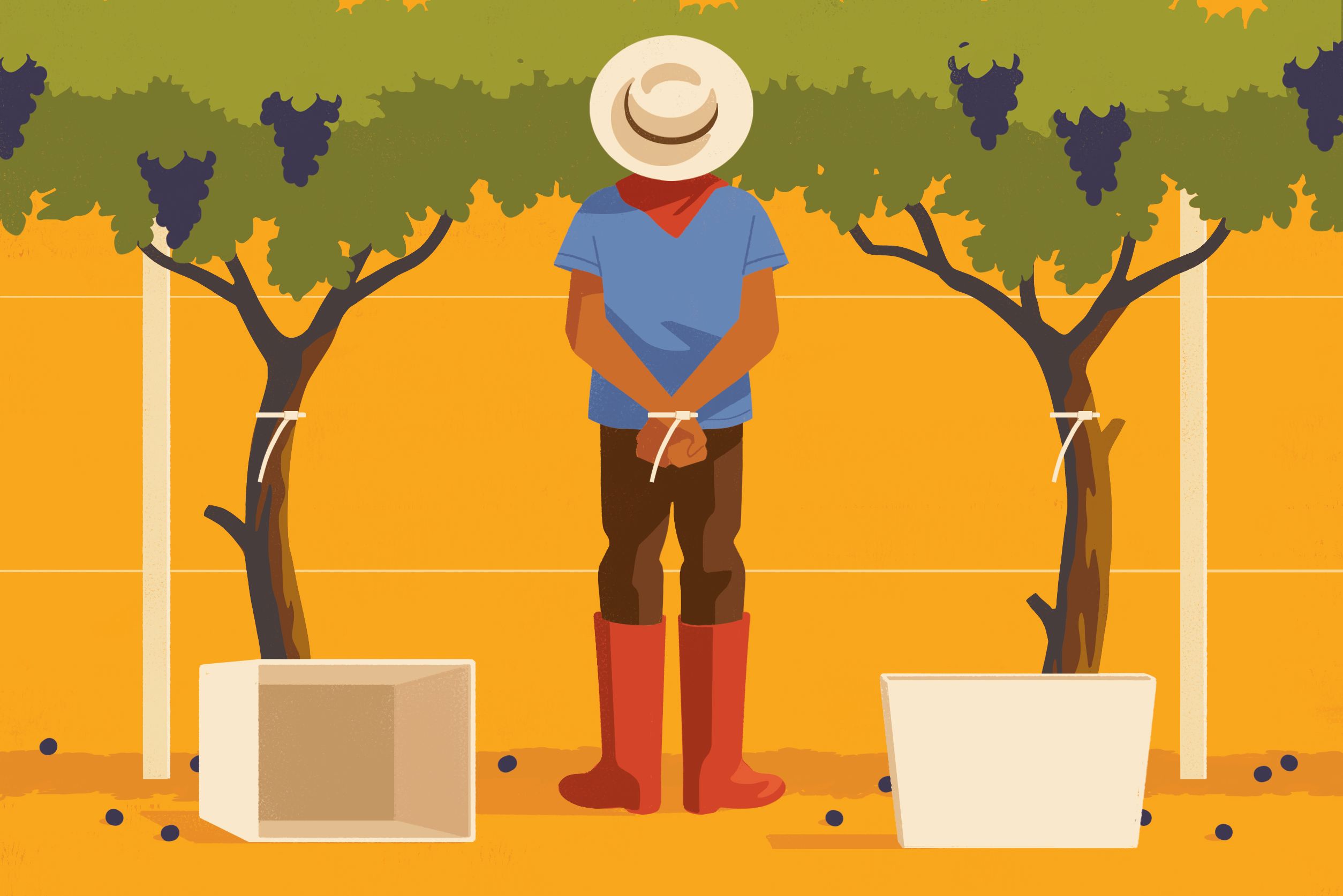Are You a Coferment Virgin? 6 Portland Varieties to Try

Image: Michael Novak
Cider is having a moment. The lightly alcoholic beverage, once relegated to the beer fridges of grocery stores, now appears on restaurant menus and holds its own as an establishment concept: a half dozen cider bars operate in town. Despite dipping beer and wine sales, sales of regional cider brands are up 5.7 percent from last year, according to Nielsen.
A coferment is, technically, any beverage made by fermenting two or more fruits together. Producers generally start simple, with apples and grapes, and find themselves allured by the challenge. “Cider fruit falls flat in some ways, so it makes sense to give more complexity and structure,” says Deron Davenport, former head cider maker for Portland Cider Co, who recently launched his own coferment-driven brand, Stray Cider.
Unlike a glass of wine, which can contain anywhere from 12 to 15 percent alcohol by volume, coferments average around 7–9 percent ABV. The process varies widely. Take, for example, a coferment called Ohm, by Archibald James Ciderworks: Winemaker Seth Cohen presses orange muscat grapes and retains the grape’s pulpy residue (pomace), on top of which he ferments six to eight apple varieties with a native yeast for a couple weeks. He then ages the concoction in neutral wine barrels for several months. Others might coferment for just a few days. Though the ensuing beverages can be sweet, the ones we’ve chosen here are mostly made in a dry or semidry style.
In the Pacific Northwest, cider makers are thrilled to turn oenophiles on to their ferments of apples, pears, quince, and marionberries; apples with apricots; and blueberries with crabapples. Davenport cops to being a wine drinker himself, but plans to lure locals with his unique blends. “Portland drinkers love weird, crazy drinks!” he says. Here are six to try.
Art & Science
On their farm in Sheridan, Dan Rinke and Kim Hamblin make mind-bending coferments ranging from dark pink Metamorphosis (pears and mondeuse, a red grape from the Savoie region of France) to Strata (50 percent Grüner Veltliner grapes and 50 percent plums). Hamblin, an artist, designs the labels. Their Fruitful Pet Nat, a blend of apple, pear, and (for now) Grüner, features a beautiful red uterus on the label. The tagline is “Be fruitful, but you don’t need to multiply,” and part of the proceeds go to the Center for Reproductive Rights.
Where to Buy: The Place, E & R, or Division Wines, or order the coferment six-pack ($124) directly from artandsciencenw.com. Find their tasting room at 22900 SW Pittman Rd in Sheridan.
Archibald James Ciderworks
Cofermenter extraordinaire Seth Cohen churns out Cot in the Sun (organic apricot and apples), Bluet Pass (organic blueberries fermented with crabapples, heirloom and cider apples), and Ohm (apples with orange muscat grapes).
Where to Buy: Online at archibaldjames.com, or at Off the Hill tasting room in Wenatchee, Washington.
Bauman’s Cider
Christine Walter began making cider in 2016 in an attempt to perfect her great-grandfather’s hard cider recipe. Her new series of semisweet coferments includes Forbidden Fruit Rosé of Pinot Noir, with heirloom dessert apples fermented on pinot noir skins. For the white Forbidden Fruit Muscat, she uses Kingston Black, Brown Snout, and Pitmaston Pineapple apples fermented with muscat skins from Paradis Vineyards in Silverton. “The aromatics on that are bonkers!” says Walter.
Where to Buy: The Place, John’s Marketplace, or Bauman’s Farm & Garden, which has outdoor picnic seating. 12989 Howell Prairie Rd NE, Gervais)
Kristof Farms
Nick Kristof may be better known as a New York Times op-ed writer and former gubernatorial hopeful, but he now lives in Yamhill, where his family tends an apple orchard and vineyard. They’ve hired a pro, Christine Walter of Bauman’s, to make their ciders, which include Noir, a semidry coferment of Golden Russet apples and pinot noir skins. “It’s an amazing apple to work with—it’s just super juicy, sweet and sharp,” she says.
Where to Buy: The Place
Finnriver Farm & Cidery
Based in Washington’s Chimacum Valley, this crew cranks out a tart and tasty Black Oak (black currants fermented and aged in oak barrels and then blended with cider); Blue Hewe (fermented organic blueberries and a cider made from two crab apple varieties); and special releases like Golden Noir cider (Golden Russet apples aged on the skins of garanoir, a Swiss grape) and the golden-hued Perry Roussanne (pear cider melded into the soft light citrus notes of roussanne grapes).
Where to Buy: Belmont Station, John’s Marketplace, or the Place
Stray Cider
Deron Davenport currently produces just two varieties: Song Within a Song (a dry earthy marionberry juice cofermented with dolcetto and whole-cluster tannat) and Beautiful Strangers (viognier and pinot gris skins), which he calls “on the fringe of a coferment.” Not to be missed.
Where to Buy: The Place, Belmont Station, Division Wines, or Imperial Bottle Shop




